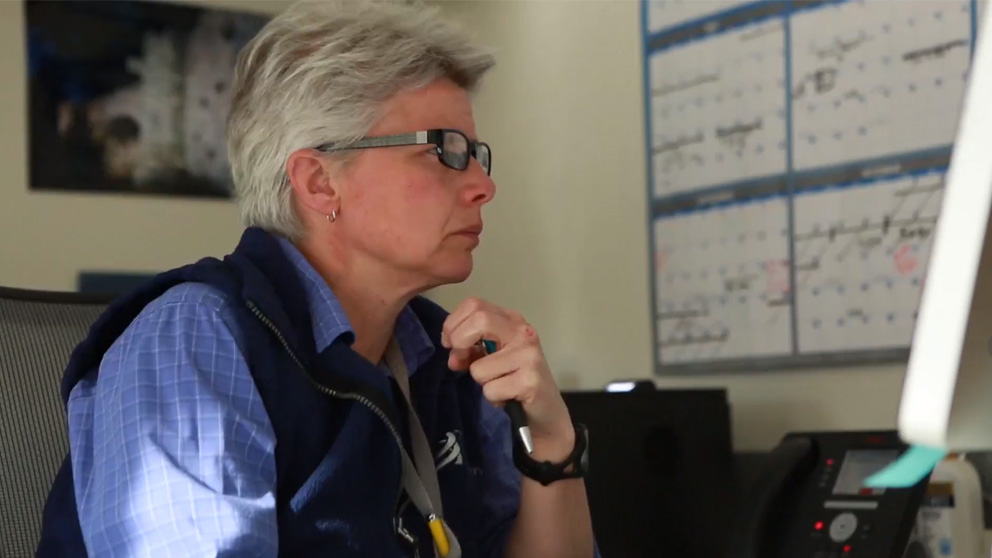 Jackson Laboratory (JAX) Professor Carol Bult, Ph.D. Photo credit: Marie Chao
Jackson Laboratory (JAX) Professor Carol Bult, Ph.D. Photo credit: Marie Chao
The Global Biodata Coalition (GBC) has announced that the Mouse Genome Database (MGD), which is hosted at JAX’s Bar Harbor campus, will be included in the first list of Global Core Biodata Resources (GCBRs). The list, released this week, is a collection of 37 resources whose long term funding and sustainability is critical to life science and biomedical research worldwide.
Like keystone species in an ecosystem, GCBRs represent the most crucial components or nodes within the global life science data infrastructure, whose failure would have a critical impact on the global research endeavor. A key property of the GCBRs is that the data they hold is available openly and can be accessed and used without restriction by researchers the world over.
For over 30 years, the Mouse Genome Database has served as the model organism database for the laboratory mouse. It is a primary resource for the international research community for biological reference data related to mouse genes and other genome features, functional annotations, phenotypes, and disease models with a strong emphasis on the relationship of these data to human biology and disease. MGD serves as the authoritative source of official nomenclature for mouse genes and strains, as well as standard annotations of mouse gene function and phenotypes.
MGD is a founding member of the Alliance of Genome Resources, which integrates biological knowledge about genes and genomes from diverse model organisms to support investigations into the genetic and genomic basis of human health and disease through comparative biology.
“We are honored to be among the first knowledgebases to be named a Global Core Biodata Resource in recognition of the importance of MGD to the biomedical research community,” says Jackson Laboratory Professor and Knowlton Family Chair Carol Bult, Ph.D. “This designation reflects the professionalism and experience of our software engineers and biocuration scientists whose efforts enable us to continually innovate and adapt to the ever-changing need of the diverse community of basic scientists, clinical researchers, and data scientists that rely on MGD. I am hopeful that the GCBR initiative will help set the stage for the development of new funding models for community resources so that we can continue to make expertly curated genetic and genomic data freely available for all.”
This first set of GCBRs were selected through a rigorous two-stage process open to biodata resources globally. At each stage of the selection process, the candidate biodata resources were assessed by a panel of more than 50 independent expert reviewers against a series of criteria that included their scientific focus, the size and reach of their user communities, their quality of service, their governance, and their impact on global research.
It is envisaged that the list of GCBRs will grow and develop over time, and there will be further opportunities for resources to apply to be considered for GCBR status over the coming years.
Guy Cochrane, Executive Director of the GBC, said, “The announcement of the list will enable funders and biodata resources to come together to co-develop sustainability models that meet their needs, and ensure that these data resources are able to continue to support the global research community”.
Eric Green, Director of the US National Human Genome Research Institute and GBC Board Member said, “Selecting this first set of GCBRs is an important step for better understanding the broader ecosystem of data resources that are vital to life science and biomedical research. It also represents a starting point for enhanced discussions with various research communities and their funders about how best to ensure the long-term sustainability of vital biodata resources.”